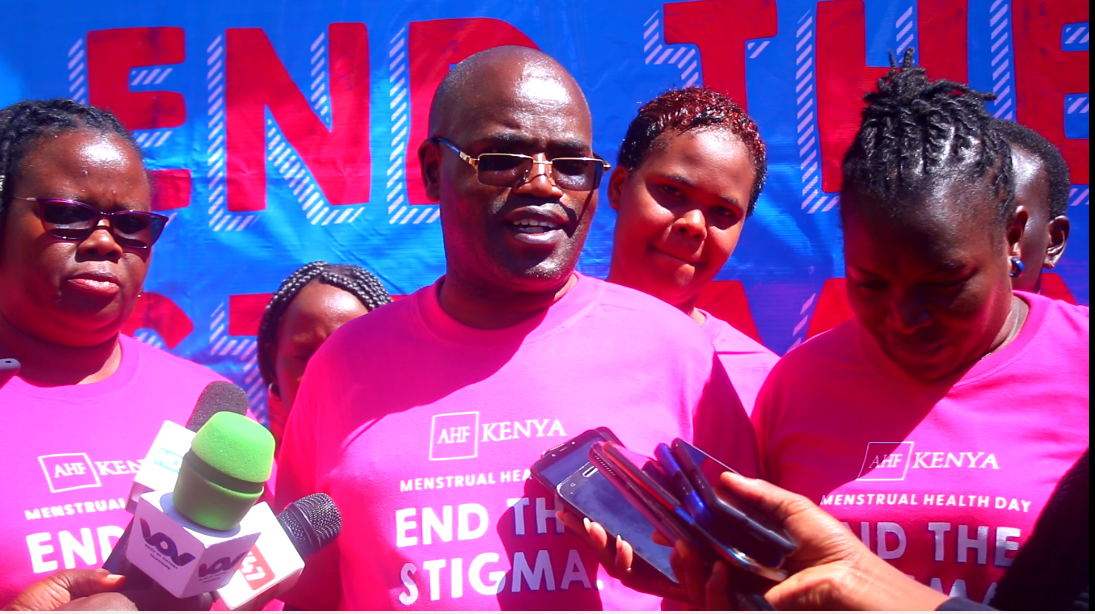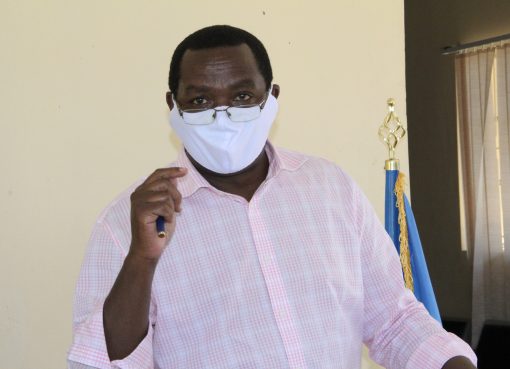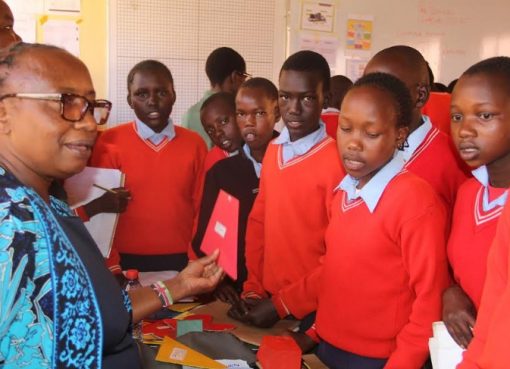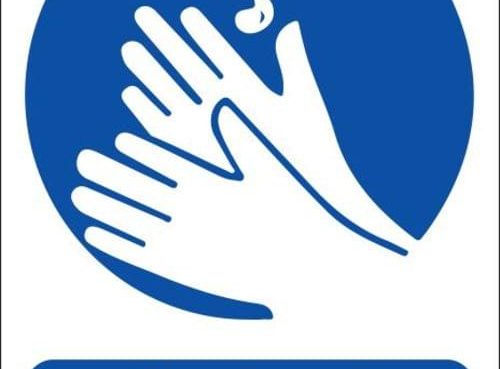The AIDS Healthcare Foundation (AHF) has called upon the government to zero-rate sanitary pads for school-going girls in order to increase the supply and reduce the cost of purchasing the commodity.
Speaking during the commemoration of World Menstrual Hygiene Day held at Kisii University on the outskirts of Kisii town, AHF Regional Prevention Programme Coordinator, Ms. Peninah Mauda said political goodwill and zero-rating of sanitary towels will ensure that local manufacturers can acquire the raw materials used in their production of the commodity at a lower price.
“As AHF, we are calling for political goodwill from the government since it is critical in supplying and zero-rating sanitary towels because, at the moment, we are importing sanitary towels,” noted Mauda.
Currently, sanitary pads are exempted from value-added tax VAT and attract zero excise duty but, the raw materials used in their manufacture attract a VAT of 16 percent and excise duty of 25 percent.
The Programme Coordinator also urged the political leadership to help the stakeholders at the grassroots level in ensuring school-going girls remain in school through the provision of free sanitary towels and ultimately, preventing teenage pregnancies.
She noted that the lack of sanitary towels is a major driver of teenage pregnancy and HIV infections among young adolescent girls because they are forced to engage in early sexual activities in order to get funds to purchase the pads.
Mauda said they were targeting at least 800 school-going girls who will receive free sanitary towels and be engaged in health talks and health education sessions in relation to menstrual hygiene in an effort to end period stigma.
In addition, the Programme Coordinator said that in conjunction with teachers, they will identify more vulnerable girls who will be provided with menstrual hygiene-related commodities including inner wears that are used to hold the pads for the girls.
Kisii County Public Health Officer, Thomas Oirere noted the event was meant to sensitize the community on menstrual hygiene management, a topic that has been considered a taboo for a long time within the Gusii community.
Oirere said they are encouraging young girls and women to adopt biodegradable or reusable sanitary pads as well as menstrual cups because the disposable ones negatively affect the environment due to lack of capacity to manage them.
The Public Health Officer pointed out that the county government of Kisii in partnership with the Western Kenya Sanitation project is in the process of setting up a plant that will manufacture disposable and biodegradable sanitary pads.
“The county government has availed the land and the process is ongoing. We welcome all partners, stakeholders, and the general public to join us in raising awareness of menstrual hygiene. Our county remains committed to ending period stigma against women and girls,” he noted.
On her part, Kisii Reproductive Health Officer, Elizabeth Nyabicha encouraged the community members to shun myths and misconceptions about menstruation and speak up, saying that some school-going girls are forced to stay indoors and miss school while menstruating.
According to the Ministry of Education, a girl who is absent from school for four days in 28 days (month) loses 13 learning days equivalent to two weeks of learning in every school term.
Subsequently, a girl loses 39 learning days equivalent to six weeks of learning time in an academic year (nine months).
By Mercy Osongo and Dedan Mwembi





